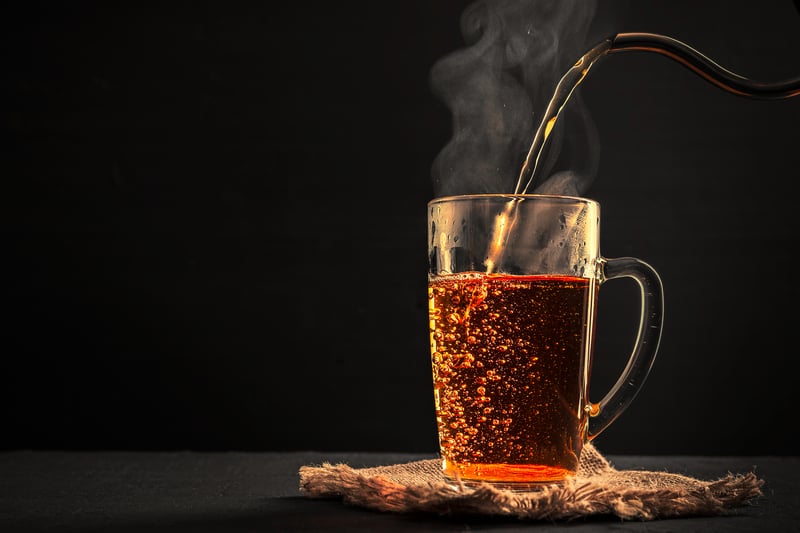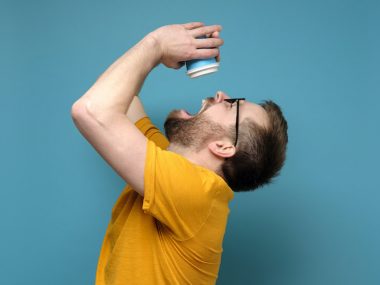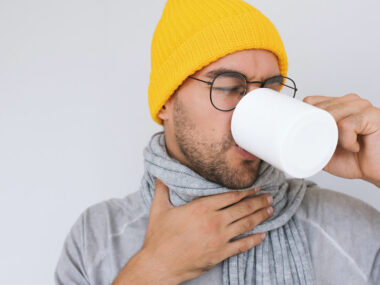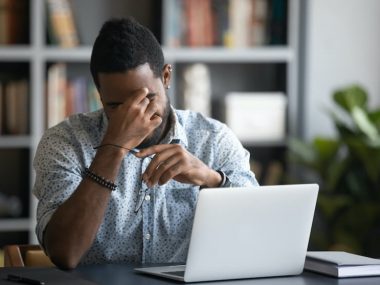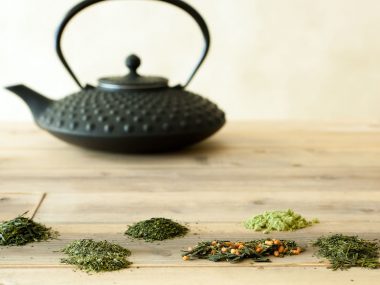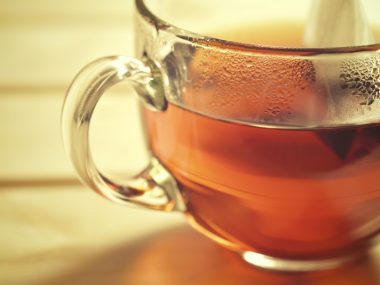Finding the perfect balance of a stiff cup of strong tea without ruining the tea or getting sick is achievable. What we reveal about making tea stronger just might make you think twice before that next brew.
Table of Contents
Stronger Tea Without Compromising On Taste
Tea drinkers differ in preferences of how tea should taste. For some, a stiff cup of tea is ideal, whereas others prefer a mellow, milder version. Then there are the mornings where we are dragging a bit and need a potent tea to give us that extra boost of energy.
Let’s see how we can get you that cup of strong tea you want while preserving the integrity of the flavor and overall benefits.
Tips On How To Brew Strong Tea The Right Way
1. Understanding Brewing Vs. Steep Vs. Boil
For those of us who bring out the saucepan to boil our tea, let’s look at the ideal way of making tea. In the tea community, you’ll often hear “brew” or “steep” used interchangeably when referring to making tea. Brewing is the act of making tea, and steeping is the step during brewing where water and tea leaves meet, and the tea extraction process occurs.
So, where does boil come in? Boiling is often misinterpreted as the step where the tea is added to boiling water and boiled for a few minutes to make a strong tea. Water intended for brewing tea should never reach the boiling point.
Boiling
Water’s boiling point is typically around 212 degrees (F) (100 degrees C) for those who live at sea level. The water for certain teas, such as black or green tea, should never reach above a certain temperature. For example, water for black tea needs to be 206 degrees (F) (97 degrees C), whereas green tea should be 180-185 degrees (F) (80-85 C.) Anything above these temperatures causes tea degradation.
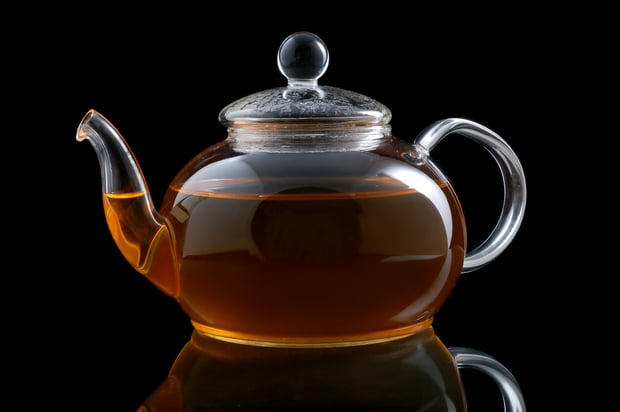
Steeping
Steeping is the step in brewing tea where hot water and tea leaves meet. During this process, tea leaves or tea bags are placed into a teapot. The hot water (at the correct temperature) is poured into the teapot, and the lid is then placed on top.
The tea extraction process begins as the water bathes the tea and causes chemical reactions to occur where the tea leaves release tannins, phenols, caffeine, etc.
Steeping is also specific for certain teas to avoid lousy-tasting tea. So, how long should you steep tea? Black tea steeps for up to 5 minutes, whereas green tea may take 1-3 minutes. Once steeping has completed, the tea is poured into the teacup.
Can you steep tea for an hour to make it stronger? You should steep tea within the specific time frame (minutes) intended for certain teas. Any longer than that, you end up with bad tea and potential side effects.
Boiling Tea May Cause Unpleasant Side Effects
Many tea drinkers unknowingly boil tea rather than brew it. Boiling tea is often done by placing tea bags into boiling water and continuing to boil them until the tea is extremely dark. Don’t let the color of the boiled tea deceive you. The darker it is, the stronger right? So, does boiling tea longer make it stronger?
Baylor University Medical Center Proceedings Journal published a study that clearly states that tea degrades at high temperatures. Additionally, tea subjected to extreme temperatures causes proteins in the tea to form an unpleasant tasting creaminess.
Boiling tea does cause it to develop a darker color the longer you boil it. However, there’s more going on in darker tea than you think. That dark color is from the tannins being released from the tea leaves. Tannins are bitter and can upset the stomach or, worse, cause vomiting or diarrhea.
Tea is meant to be brewed, not boiled. Otherwise, you may find yourself sick or left with a horribly bitter, unpleasant cup of tea.
2. Stronger Tea Is More Caffeine-Potent
There are a few notable differences between a regular brewed cup of tea and one intended to be stronger. It helps to understand that a cup of strong black tea packs a bit of a punch and a much more intense taste.
Caffeine
Stronger tea typically contains more caffeine, especially if extra tea is added to ramp up the flavor and energy boost. Because of this, it’s important to keep in mind that a regular cup of tea yields up to 60 mg of caffeine.
Adding more tea to the brew increases and possibly doubles that amount of caffeine. The FDA recommends a maximum daily intake of caffeine of no more than 400 mg. If you prefer your tea strong and add more tea, you might be able to enjoy up to 4 cups of tea a day.
The more caffeine, the more likely you’ll find that the strong tea may taste bitter. Caffeine is a highly bitter compound.
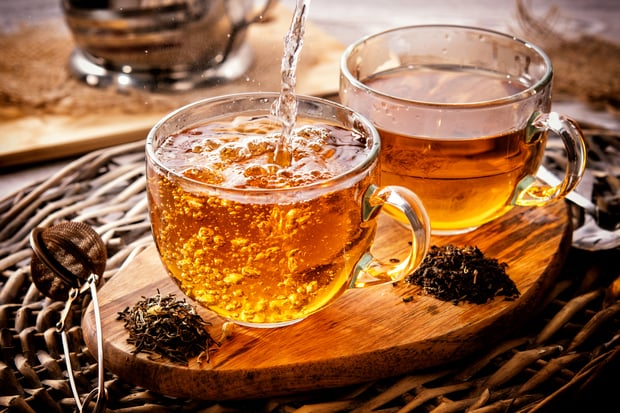
3. Start With A Robust Tea
What is the strongest tea you should use to make a strong brew? Knowing which teas yield a strong, robust brew is the most important step to achieving strong-tasting tea. Why not use a strong-tasting tea from the start rather than doubling down on the amount of tea or compromising on taste and benefits?
Black Tea
Choosing a strong black tea is fairly easy because most black teas are inherently strong in the first place. However, there are a few black teas that stand out ahead of others with bold flavors. Should one of the following black teas not be bold and strong enough, one can be blended with another for added layers of flavors.
- Brisk
- Strong
- Malty
- Considered to be the strongest black tea
Nilgiri
- Floral
- Fruity
- It makes a great iced tea
- Robust
Kenyan
- Robust
- Slightly Malty
- Assertive
- It contains a blend of various black teas
- Considered a strong tea
- Highly caffeinated
- It contains a blend of different Assams and black teas
- Next to Assam, this tea is perhaps the second strongest
- Malty
- Brisk
Green Tea
We haven’t forgotten our green tea drinkers who might be looking for a strong green tea. While most green teas are milder than black teas, Matcha green tea packs a punch of high caffeine, making it a strong one!
Matcha
- Sweet
- Earthy
- Grassy
- Vegetal
4. Use Loose-Leaf Tea If Possible
Loose-leaf tea is higher quality tea that is much better in flavor, aroma, and overall benefits. However, for those of you who are die-hard teabag drinkers, we’ve included some tips on making a strong brew using tea bags.
Loose-Leaf Tea
Loose-leaf tea is higher quality tea because it contains whole or parts of leaves. To experience the full flavor and strength of tea, loose-leaf is the way to go.
Tea Bags
Teabag tea is typically made from the dust and fannings (leftover particles) of tea leaves used to make loose-leaf tea. Teas used for tea bags are usually lower in quality.
So, how many tea bags do you use for strong tea? Many teabag drinkers use more than the recommended number of tea bags which leads to a much stronger tea but also an unpleasant tasting tea. Teabag tea tends to be more astringent because fannings and dust (particles of tea) are quicker to release tannins. Too much tannins leads to a tea that causes the mouth to pucker.
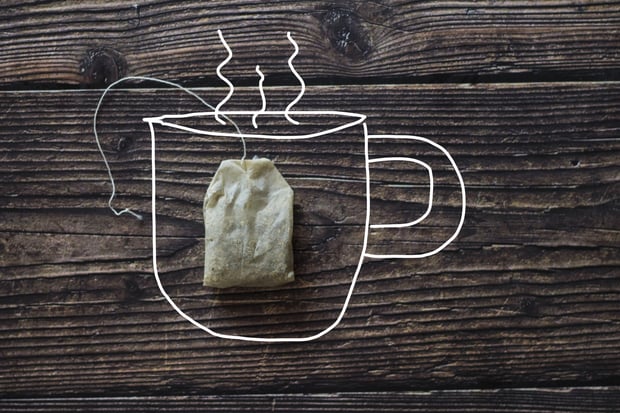
Another mistake some teabag drinkers make is leaving tea bags in a pitcher of iced tea. The perception is that leaving the teabags in the tea causes the tea to be stronger. However, all that’s doing is ramping up the astringency and bitterness of the tea.
5. More Tea, Less Water
If you like your tea a bit stronger, adding a little extra loose-leaf tea or an extra teabag just might raise the bar in the strength of a cup of tea. Something to try if you are into tea blends is to combine Assam and Irish Breakfast for a double punch. Just remember that by doing so, you may have an uber strong cup of tea, but that tea will also be higher in caffeine. More tea, more caffeine.
Some of us have a “duh” moment when the suggestion of using less water to brew a cup of tea is thrown out there. Why didn’t we think of that! Does less water make the tea stronger? Yes, less water creates a more concentrated tea.
Think in terms of an espresso. Espresso is made with a lot less water and more coffee. Why not apply this method to your cup of tea? Just beware that doing so can lead to a super brisk cup of tea that your palate may not be prepared to enjoy.
Does Stronger Tea Still Deliver Benefits?
Any health benefits that tea provides, whether regular or stronger, can be wiped out altogether if you “cook” your tea by boiling or brewing at high temperatures. Staying within the boundaries of the ideal brew/steep time is vital to preserving any benefits that tea delivers.
Stronger Tea Can Still Taste Good
Once you find that sweet spot in the perfect amount of tea or water, providing it has been brewed and steeped correctly, you finally arrive at your own personal tea formula. Toss out the saucepan and treat yourself to a nice digital tea kettle and teapot because you’ll find in the end, it was well worth it.
